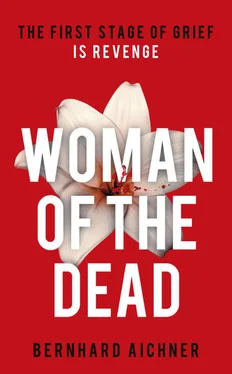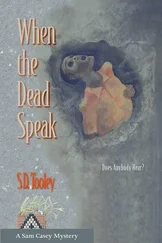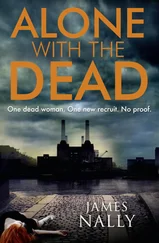Massimo wants to touch her again, hold her close. He says so quietly. He is sitting beside her at the dining table, and the children are playing on the floor. It is supper time. Massimo simply dropped by, he wants to be there for her. His helpfulness, his concern, his warm hand touching her. I need time. I don’t know if that was wise of me, I was so lonely. I’m grateful to you, Massimo. Please let’s take things slowly. I have to think, Massimo. You’re wonderful, but all the same it was wrong, because of Mark. You know that. Forgive me. She says these things without words, only with the touch of her fingertips. They do the talking, caress him, console him. Because she knows he wants more. He wants to be with her, day and night. But she can’t, not yet. She is afraid of it, she doesn’t want the children or Karl to see that the family friend has suddenly come between them. Blum would like to strip this closeness away now, be rid of it. It is suddenly burdensome to have him there, wanting something from her. She must tell him he should go, say she would rather he phones before coming. Blum knows that she has made a mistake, she was thinking only of herself; she knows she will hurt him if she tells him to go away. She knows that, and his fingers can feel it. They reach for her, longing, crying out. Not now, Massimo, please. Please give me time. She looks at him, asking him to go. I have to put the children to bed. I’ll call, thank you, you’re an angel . She takes him to the door, embraces him, feels his warmth. But then she puts the brakes on, draws away from him and closes the door. She is alone again, with the children. She doesn’t want any other man, only Mark.
She stands in the cloakroom for two minutes. She won’t let herself cry. She has to brush the children’s teeth, play with them, be a good mother, read them a bedtime story. She must be there for them, soothe her guilty conscience for letting Karl take on too much. But she can’t unsee what she’s seen, everything that has cast her life into confusion for the past five weeks. It’s there, it occupies every minute of her waking hours. When the girls are asleep, when they’re awake. She thinks of Dunya, of the Schönborns, of the priest. While she’s getting the girls into their pyjamas, while she reads them the story of the dancing horse, while she lies in the dark beside them humming a tune. Because it’s like a fever. That feeling, the rage, the certainty that Mark might still have been alive. Everything is in movement, everything will change.
But morning follows night, and with it her everyday routine. Funerals, Reza, the children, laying out bodies, preparing them, the tears of their relations. And the same questions all the time. How will she go about it? How will she overpower him? Where can she get him on his own? She thinks of nothing but Herbert Jaunig for days on end. She reads everything she can find about him on the internet. She finds out where he lives, how he lives. She watches him, follows him. She watches him saying mass in the cathedral, raising his hands to break the bread, drinking the wine from a golden goblet. A priest like any other, a man of God.
Hagen used to take her to church every Sunday. And every Sunday Blum hoped that the man in the cassock would help her. She had told him that she didn’t want to live any more. She was eight years old. She had been alone with him one afternoon in the confessional, safe and sad. She had told him that she couldn’t breathe any more, that she wanted a cuddle. An eight-year-old girl summoning up all her courage, trying to put her unhappiness into words, begging for help. Begging the man in the cassock who kept talking about brotherly love and mercy. Blum had cried. She remembers whimpering very quietly. He had heard her, and told her to stop that. His voice through the grating hadn’t done anything to make it better. Instead of taking her in his arms he had given her his prescription for happiness. Two Our Fathers and a Hail Mary. Three prayers for a happy childhood. A child who wanted to die, and a man of God.
Every Sunday she had hoped that he would take her aside, that he would remember what she had told him so often. Blum had believed for a long time that he could help her because Jesus was a good man, because Blum had been stupid enough to believe that. Thirty years later she stands at the very back of the church looking at the altar, watching without emotion as Herbert Jaunig gives the blessing, spreading wide his arms and promising heaven. A hypocrite, a play-actor, not a man of God. Not Jesus, just a man in his mid-fifties. Not a lamb but a wolf.
‘Blum?’
‘Yes?’
‘How much longer?’
‘Not long. You mustn’t get impatient now. I can hear someone moving about. We must wait until the staff have gone home.’
‘Did I ever tell you you’re crazy?’
‘Yes, you did. But that won’t get you anywhere. We must go through with it now.’
‘But you know I’m a police officer.’
‘Don’t get so het up, darling.’
‘We could at least open the champagne.’
‘We’re sitting in a cupboard, Mark.’
‘So? Is it against the rules to drink champagne in a cupboard?’
‘We wanted to celebrate in the mattress department.’
‘You wanted to.’
‘Because you don’t want a water bed. What else could I do?’
‘Correct, I’m not in favour of a water bed, and that’s why we’re spending the night in a furniture shop.’
‘Exactly.’
‘If they catch us it could be very awkward for me, you know.’
‘Like I said, don’t get so het up, Mark.’
‘I want to drink a toast with you here and now.’
‘We have to wait.’
‘Then I want to kiss you.’
‘Not now.’
‘Then when?’
‘We must keep quiet.’
‘But I want to kiss you now. If you don’t kiss me I’ll scream, and then you can forget all about that water bed.’
‘Do you really, really want to kiss me now?’
‘Yes.’
‘Then come with me.’
Blum opened the cupboard door and ran, ran on tiptoe through the furniture shop. Hand in hand with Mark, upstairs. To the mattress studio, the water bed. They sank into it, giggling and embracing, then kissed. It was their wedding day, six years before. When she thinks of it, the memory still makes her tingle. She can see it in her mind’s eye – the face of the nightwatchman who suddenly appeared. The electric torch that came on, the beam of light shining on their bodies. Two lovers in each other’s arms lying calmly on a water bed. Instead of jumping to their feet they simply looked up and past the watchman’s uniform to his face. No one said a thing, the nightwatchman didn’t move. Mark and Blum were smiling, there was no resistance. They gave themselves up and didn’t try to run away, but lay in their embrace, waiting to see how he reacted. The nightwatchman, the strong arm of the law. They were expecting the worst, but the worst didn’t happen. Instead of threatening them, exerting his authority over them, the nightwatchman grinned and politely informed them that the furniture shop was closed. Then he escorted them to the exit, just like that.
In the car park outside the furnishing store they could hardly believe what had just happened. To think that they’d been caught and there were no consequences! Only their laughter ringing out over the empty lots. Mark opened the champagne and Blum drank out of the bottle as they sat in the car, because it had begun to snow. Six years ago, in the little Polo where Blum was now waiting for Jaunig. Drinking champagne, holding hands, laughing until the bottle was empty. For a long time they sat in the car watching the snowflakes fall, until the windscreen was white, until they were alone. Mark and Blum, safe under a blanket of snow.
Читать дальше












